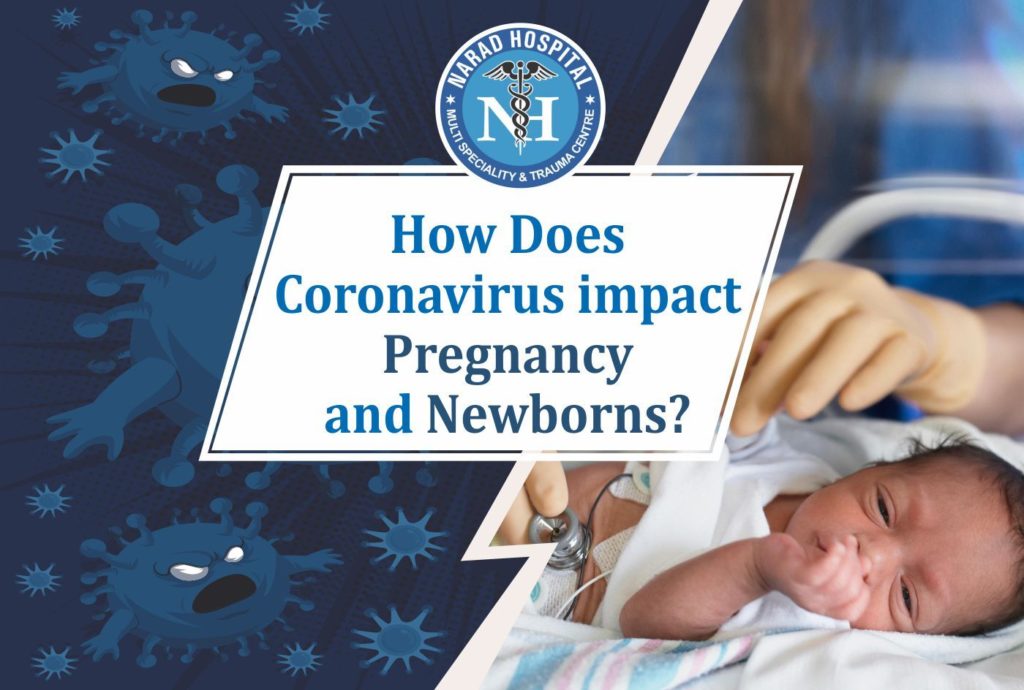Coronavirus is a big issue for everybody, but pregnant women and others expecting a baby may worry about the effects of this infection on their health and the health of the baby.
Coronavirus infection is a new disease that results from the novel coronavirus SARS-CoV-2. As it has recently happened, world experts have not yet collected enough information to know precisely how this pandemic affects the health of pregnant women, fetuses, or newborns.
However, some renowned organizations have introduced some essential guidelines on how pregnant women and those with newborns should proceed during the crisis.
IMPACT OF CORONAVIRUS ON PREGNANT WOMEN
According to the CDC, there is no proof that coronavirus is affecting pregnant women in some other ways. However, during pregnancy, women can have the risk of getting the infection from other deadly viruses like influenza. These infections affect both the woman and baby adversely.
According to the ACOG, an infected pregnant woman should receive priority testing. Experts found that more than 50% of the pregnant women were hospitalized due to coronavirus between March 1 and April 14.
These are critical times, and it is normal to worry about it. Taking time for self-care and activities that reduce stress and hypertension can have essential benefits for both the woman and the baby.
HOW DOES CORONAVIRUS AFFECT THE BABY?
COVID-19 can affect newborns easily, and some babies have got infection just after birth. Gynae doctors do not know if babies caught this infection before, during, or after delivery.
Experts have not found the virus in amniotic fluid when the woman has got the infection. The babies may, therefore, have got the infection after birth, but gynae doctors are still unsure.
In most cases, newborns have had mild or no symptoms of COVID-19 and got the recovery very early. There are also some reported cases of critical sickness in newborns, though.
In a few cases, early birth and other pregnancy complications have happened in females with COVID-19. However, gynaecologists do not know if these issues were related to the virus.
THINGS TO CONSIDER FOR GIVING BIRTH
Infected women should contact their gynaecologists in advance to find out about their protocol. Many medical centres have separate entrances for the patients of coronavirus.
Some gynae hospitals are restricting the number of visitors with the aim of patients’ safety from the virus. These steps may affect the visitors who are present during the tests, at the delivery room or be present during labour.
However, some gynae hospitals have removed the limitations and no longer have these rules in the centre. Patients can call the medical centre in advance to find out the latest guidelines
WHAT HAPPENS AFTER BIRTH?
In some cases, if a pregnant woman got the COVID infection, a gynae doctor might recommend a separation between the mother and child after delivery to destroy the risk of the newborn catching the virus.
Those who do not want separation should take some additional precautions. These include regular do sanitization and wearing a mask when within 2 meters of the newborn.
The WHO still encourages infected women to hold and breastfeed their babies because this is the best thing that makes a close contact between mother and child and helps a baby to thrive. Infected women should hold their newborns skin-to-skin and breastfeed safely with good respiratory hygiene. The WHO team also encourages mothers to stay with their babies as much as possible.
However, these mothers must follow strict safety procedures. The gynae hospital staff will provide care to infected pregnant women according to the processes that the facility has in place for other COVID patients. These include staying in private rooms, away from other people.
DOES COVID-19 AFFECT BREASTFEEDING?
Breast milk provides many benefits for babies — not only it has the right amount of nutrients, but it is also the best source of antibodies and hormones that save babies from diseases like corona.
Expert gynaecologists usually recommend that women breastfeed as much as possible, but infected ones might worry about passing the disease on to the infant.
Women who are going to breastfeed their babies should wear a face mask and sanitize their hands before touching the baby.
If an infected woman plans to do breastfeeding, she should wash her hands properly before and after feeding. Where possible, someone who does not have the COVID infection should do the actual feeding.
CONCLUSION
COVID-19 is a new virus, and there is limited information about how it harms pregnant ladies, babies, and the future health risks of these individuals. The limited data available proves that SARS-CoV-2 does not affect babies in the womb, in amniotic fluid, or in breast milk.
Anyone concerned about how coronavirus might affect their health or their baby’s health can consult the best gynaecologists at Narad Hospital, the best gynae hospital in Hoshiarpur, for up-to-date information and reassurance.

